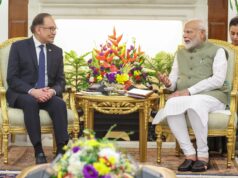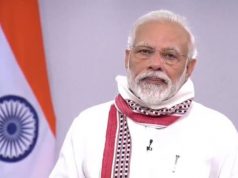

“Modi has impressed me so far with his willingness to shake up the bureaucratic inertia inside of India. But that is a long-term project and we’ll have to see how successful he is,” Obama told a business roundtable, which was attended by top corporate leaders of the country.
The roundtable was organised to discuss the current economic condition of the US and across the globe. Last month in Myanmar on the sidelines of the East Asia Summit, Obama in his brief interaction with Modi had told him that he is a “man of action”.
On his return from the 10-day trip to the Asia Pacific region that took him to Beijing, Myanmar and Australia, Obama announced that he has accepted an invitation to be the chief guest at the annual Republic Day Parade in New Delhi on January 26 next year.
In his interaction at the business round table, Obama said the US, over the last six years, has put more people back to work than Europe, Japan, and the rest of the advanced world combined. The growth of emerging markets have been slower than anticipated, he noted.
“The overall global picture is people continue to look to America for economic leadership. We need some other engines to be pulling the global economy along and we’re pursuing diplomatic policies and consultations to try to encourage that,” Obama said. The United States stands out as an economy that is going strong at the moment, he said, adding that is not the case with other countries of the world.
“Japan is contracting in a way that has surprised many analysts and I know surprised Prime Minister Abe. He’s got new elections. There’s a delay in the consumption tax, the second phase of it, that was slated to go into effect. They’re pursuing fairly aggressive monetary policy,” Obama said.


“If you look, the truth is, is that Spain, France, to a lesser extent Italy — most of the big countries in the south have been engaging in some pretty serious structural reforms. They haven’t done everything that they need to do in terms of providing labour flexibility, for example, but they are making strides in addressing many of those issues,” Obama said.
“But right now, what you’ve got is an environment in which the dangers of deflation and really weak demand in Europe chronically, over a long period of time, I think are more significant than dangers of overheating economies and inflation in the European Union,” he said.
China, he noted, is trying to shift away from a model that was entirely export driven to a model that recognises they need stronger demand inside the country. “And they’ve got a nascent, but growing middle class starting to have enough confidence to spend some money,” he added.
-INDIA TODAY










